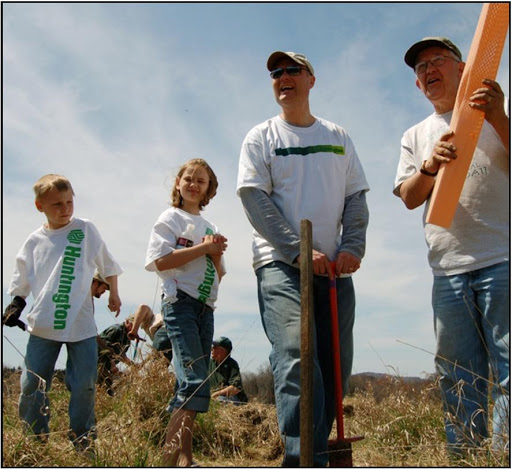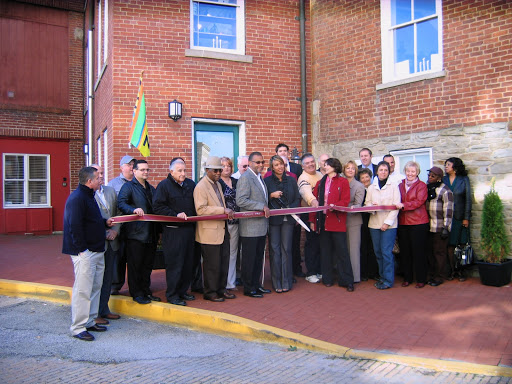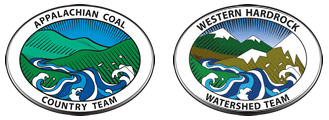Based on the work of
Little Beaver Creek Land Foundation
Northeast Ohio
Little Beaver Creek Land Foundation (LBCLF) worked with a local bank to find volunteers for a tree planting project. The bank has an employee volunteer program and 12 volunteers participated in the tree planting in two shifts. There is potential for this relationship to lead to future funding opportunities from the business. To reward the service of these business volunteers, LBCLF sent a picture of the volunteers hard at work to several of the bank’s branches within the watershed.

Tested by
Piney Creek Watershed Association
Southern West Virginia
Although Piney Creek Watershed Association (PCWA) has always had a close relationship with the Beckley-Raleigh County Chamber of Commerce, PCWA had not attempted to formally recruit volunteers from the local business community. PCWA decided to focus their efforts on a sustainable business fair to be held in conjunction with the Beckley-Raleigh County Chamber of Commerce’s Business Show. The idea was for local sustainable businesses to be supplied with booths to exhibit their work, thereby showcasing this work to the community as a whole and hopefully begin a discourse in the local business community on sustainability efforts. PCWA planned to actively seek business partnerships to help plan and hold the fair but the event was canceled due to a lack of both monetary and personnel resources. They then decided to pursue a more specific, lower-scale event and partnered with West Virginia Sustainable Communities (WVSC) to host a Riverside Sustainability Action Training in the Beckley area. WVSC offers this training for communities to synthesize community sustainability efforts and establish a regular working group to continue building collaboration efforts. PCWA held a successful Riverside Sustainability Action Training that was welcomed and well-attended by prominent members of the business community. This “green community working group” will hopefully continue to coordinate various local efforts on sustainability in the Beckley/Raleigh County community.
Tested by
Brownsville Area Revitalization Corporation
Southwest Pennsylvania
Brownsville Area Revitalization Corporation (BARC) hoped to gain closer relationships with local businesses in order to build a volunteer base for the various community activities. BARC has faced issues with a lack of volunteer recruitment and wanted to bring in more long-term volunteers. Over the years, BARC has acquired a long list of businesses that support BARC’s mission through monetary donations, but had never reached out to these supporters for volunteer efforts. It was anticipated that many businesses might view it as asking too much considering financial contributions in the past, but they decided it could be refreshing to be asked for volunteers instead of donations. BARC decided to focus recruitment efforts on an upcoming creek clean-up. An OSM/VISTA wrote letters to businesses, made follow-up phone calls, and visited personally to ask them to come and distributed volunteer information. Two volunteers from the Brownsville Re-Use It Shop volunteered for the event and donated their store space for a cook-out for all the volunteers. The Rt. 40 Classic Diner also donated hot dogs for the cook-out. Challenges in garnering involvement and support may have been caused by some uncertainty of how the businesses would benefit from the activities outside of getting good publicity.

“It’s important to partner with local businesses no matter what their size. I think the task at hand really becomes more about framing the event or designing to event so that its benefits are extremely clear and specific to the businesses you’d like to involve.”
-Brownsville Area Revitalization Corporation
